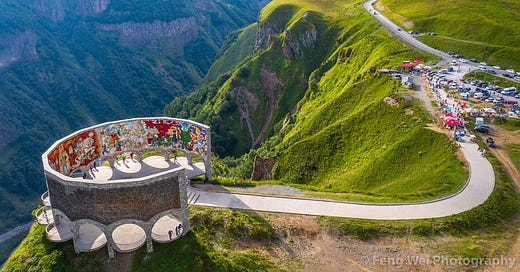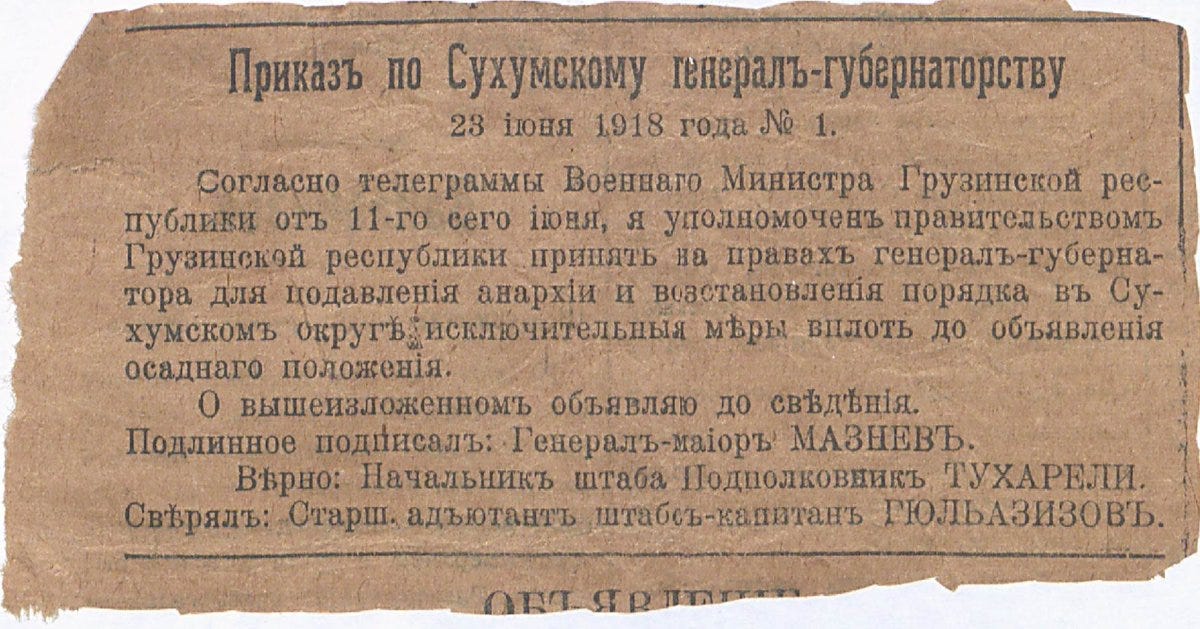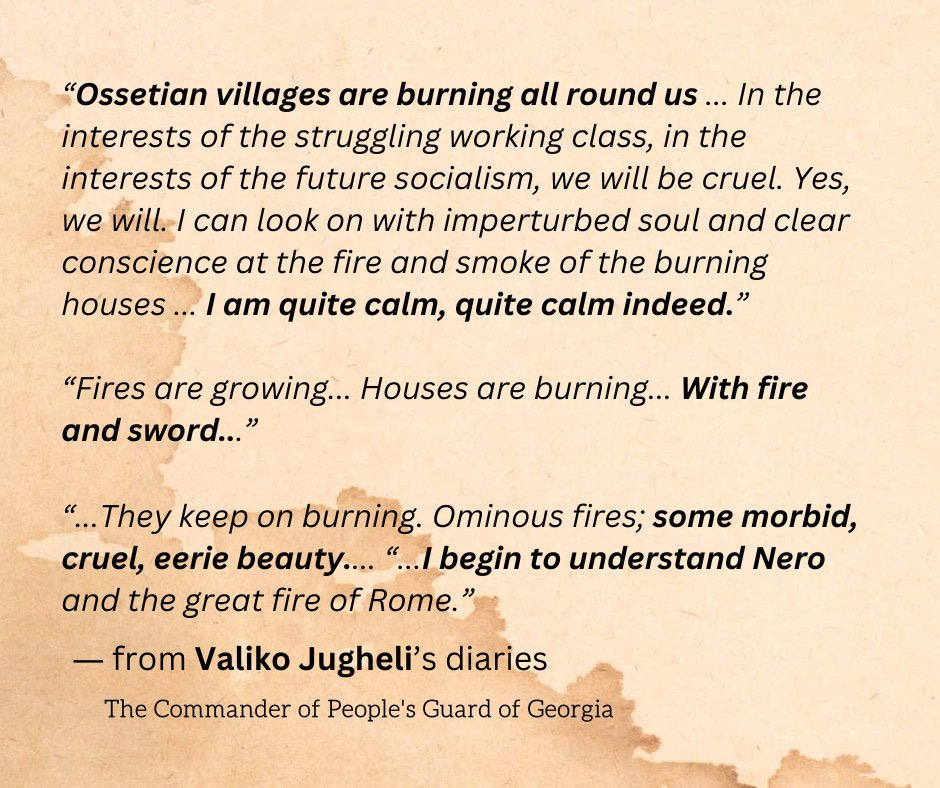Georgia's Contradictory Stance on Russian Imperialism
Selective Memory: Georgia's True History with Russia and the Caucasus.
Today, May 26, is celebrated as Independence Day in Georgia. It commemorates the adoption of the Act of Independence on 26 May 1918, which established the “Democratic Republic of Georgia” in the aftermath of the Russian Revolution of 1917.
As in previous years, social media is once again filled with one-sided and inaccurate information shared by Georgians. We will select a few of these posts and evaluate their claims using historical sources and contemporary realities.
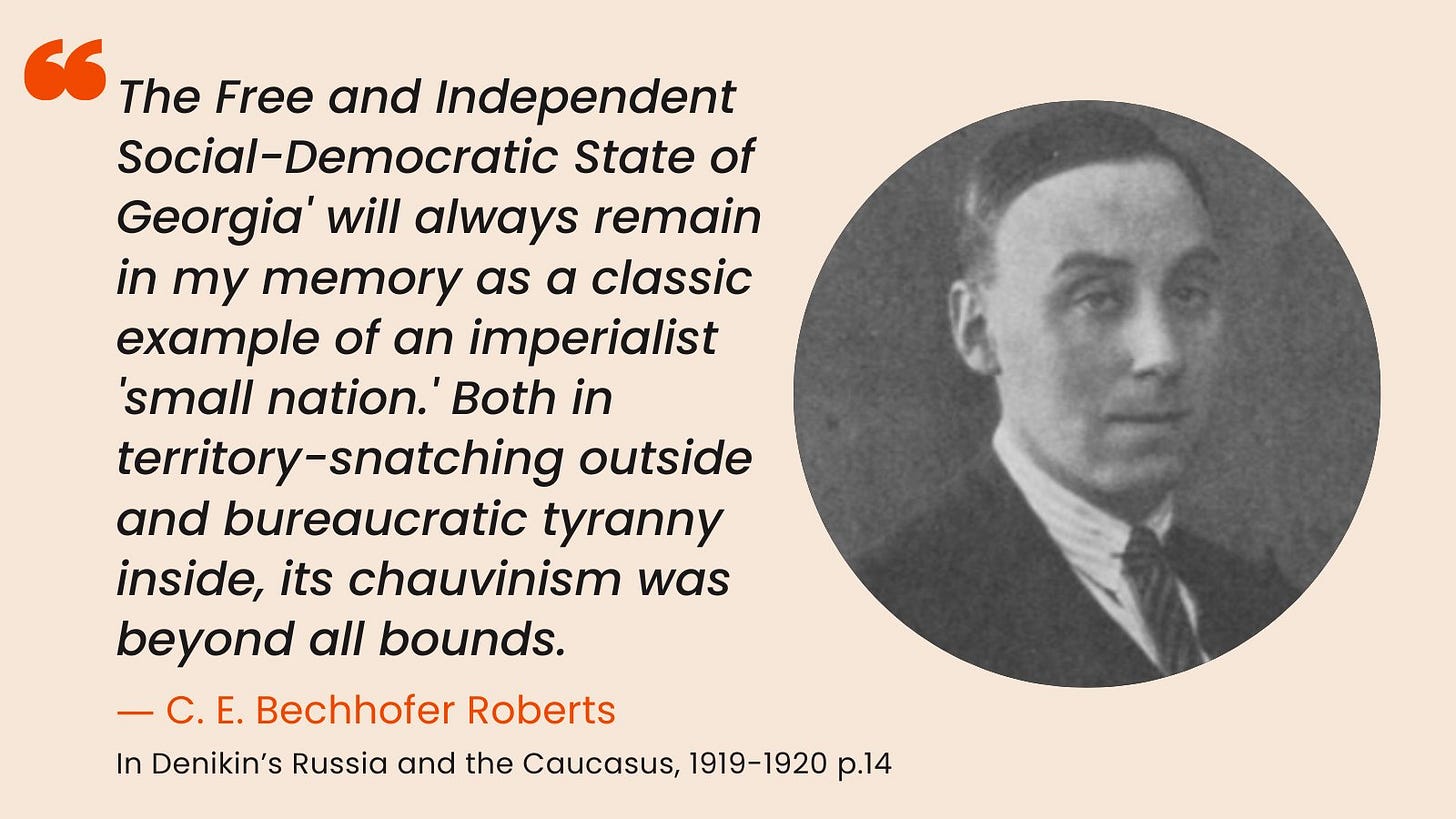
"Facts do not cease to exist because they are ignored."
— Aldous Huxley
The Georgians are quite adept at portraying themselves as victims. Another area where they excel is creating the impression that they have always been anti-Russian, fought against Russia, and suffered from Russian imperialism.
19th Century
In the 19th century, during the Russo-Caucasian wars, it was the Georgians who fought alongside Russia against the mountaineers, the North Caucasians. Exactly 160 years ago, on 21 May 1864, it was the Georgians who celebrated the end of the war alongside Russia, congratulated Russian generals, and described this event as "one of the most wonderful events in the life of the Georgian nation" ['Shroma', 1882, No: 15 (in Georgian)].
“Tbilisi served not only as the base of imperial administration and a growing imperial educated society, but also as an anchor for the Russian military in their prosecution of the long Caucasus War.”
— Moshe Gammer, Muslim Resistance to the Tsar Shamil and the Conquest of Chechnia and Daghestan (1994).
+ Georgii Tsereteli (1879): It’s time that we grab new territories in the Caucasus
+ Who should be settled in Abkhazia? By Jakob Gogebashvili (1877)
On 9 February 1918, the Abkhazian National Congress (ANC) signed a treaty [Also see: Gazeta Nashe Slovo (1918)] with the Georgian National Congress (GNC), representing the Special Transcaucasian Committee. At the time, Georgia was de facto under the control of the Transcaucasian Commissariat, while Abkhazia was part of the confederative Mountain Republic.
On 11 May 1918, the Batum Peace Conference proclaimed the Mountainous Republic, incorporating the entirety of the North Caucasus and Abkhazia.
In June 1918, Georgian troops, with German backing, occupied Abkhazia, asserting it as part of Georgia and incarcerating members of the Abkhazian parliament.

Upon arrival in Sukhum, the commander of the occupational forces, General Mazniev (Mazniashvili) published an order on the Sukhum General Government dated June 23, No. 1, by which Abkhazia, according to the telegram of the Minister of War, was declared the Sukhum General Government, and General Mazniev - the Governor General.
“Moreover, I bring to your attention that The Abkhaz People’s Council gave General Mazniev broad powers, including the right to impose a state of siege, but only when conducting military operations.”
— Tsentral'nyy gosudarstvennyy arkhiv Abkhazia (TSGAA), F. I-39, D. 6
+ Correspondence between Simon Basaria and Haydar Bammat
+ Georgian policy towards Abkhazia in the period 1918-1921, by Vadim Mukhanov
+ Abkhazia and Georgia on the Verge of Independence (1917 - 1921), by Cem Kumuk
20th Century
On 14 August 1992, Georgian troops once again invaded Abkhazia. The war lasted 13 months, and in the end, they lost. Before and during the war, Georgia received arms support from Russia. It was also Georgia that worked with Russia to prevent North Caucasian volunteers from reaching Abkhazia.
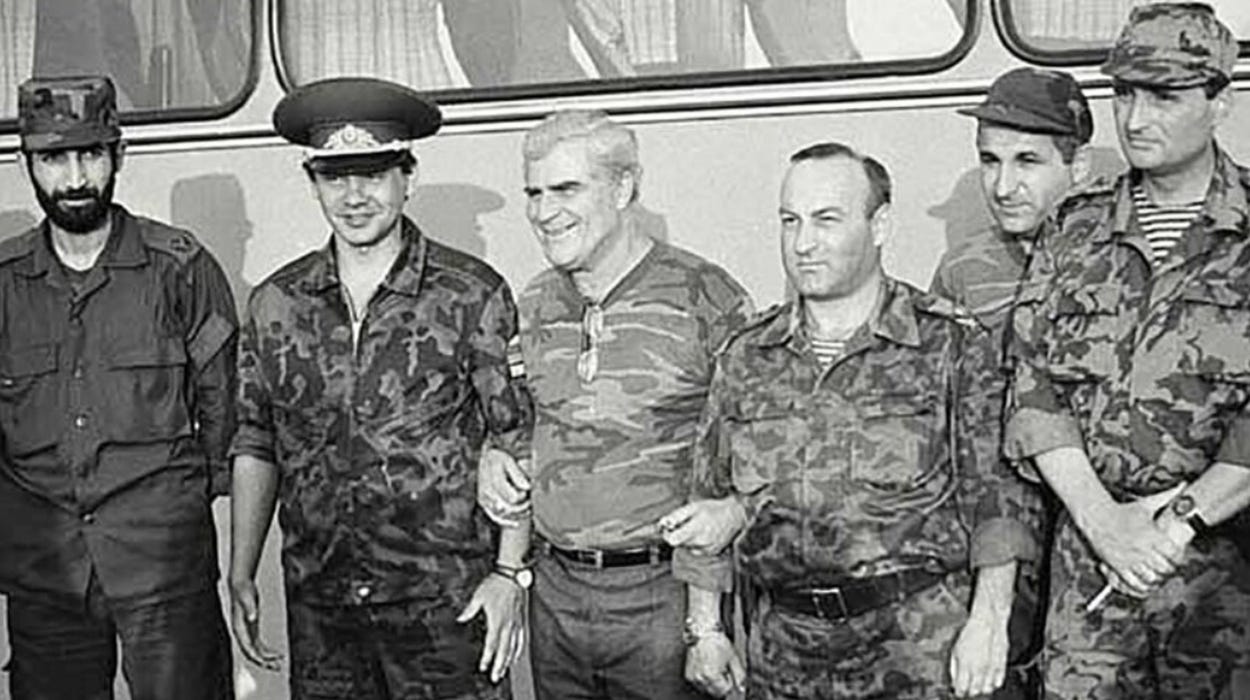
Immediately after the war, in 1994, the Treaty of Russian-Georgian Friendship, Good Neighbourliness, and Cooperation was signed.
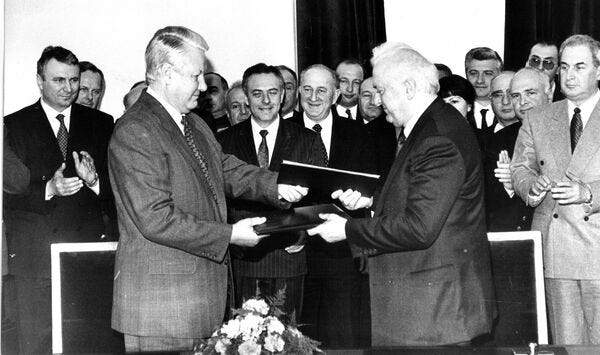
Together with Russia, they imposed a heavy embargo on Abkhazia.
Until 1 July 2001, there were three Russian bases in Georgia.
1. The 137th base, located at the Vaziani airfield, is situated just a few kilometers from Tbilisi.
2. The 12th military base is in Batumi.
3. The 62nd military base is in Akhalkalaki, housing around 3,000 servicemen.
During the first Russian-Chechen war, Russian warplanes took off from the Vaziani base to bomb Chechnya, while Shevardnadze was expressing support for Russia and its Chechen policy.
"for Georgians, the sun rises not in the east, but in the north—in Russia."
— Eduard Shevardnadze
Is it for nothing that Andrei Sakharov, whom the EU honours with an award every year, called Georgia a "mini empire"?
When you look at the history and experiences of Caucasian peoples like the Abkhazians, Circassians, Chechens, and Avars with Russia, what Georgia has gone through with Russia is negligible. Moreover, these peoples have never fought alongside Russia against other fellow Caucasian peoples. Only the Georgians and Georgia have done so.
Just as Georgia deserves independence, so do the other Caucasian peoples, and arguably, they deserve it even more. Georgians complain about Russian imperialism, but peace will not come until they confront their own small empire and their acts of cruelty.
but…
What they want is freedom and independence for their own people, and oppression and injustice towards others—this is their understanding of democracy.

